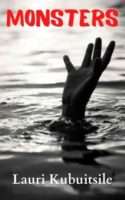Spot the difference between these two scenarios.
News: A local man was locked in and burnt alive in his home by a mob.
Community: Oh my God, that is horrific! Who were those evil killers?
News: The local Somalian shopkeeper was locked in his shop and burnt alive by a mob.
Community: Ya well, that greedy foreign dog deserved it for taking our jobs.
The ‘difference’ in the scenarios all comes down to what is called xenophobia (zen-o-fo-bi-a). We can define our brand of xenophobia as a suspicion and dislike of foreigners, especially black Africans from other countries, by mostly black South Africans. It’s a weird kind of racism. Strangely, there are no or very few xenophobic attacks on, for example, immigrant white people, or Chinese or Indian people. You can read more here.
Note that some people like to pass off these attacks as ‘just general criminality’. During the worst ever xenophobic attacks in 2008, even our then-President said: “The attacks on foreigners in the “dark days of May” were not xenophobia, but “naked criminal activity”, President Thabo Mbeki said in Pretoria on Thursday.” Read more here.
We do not know how many people, if any, have ever been punished for xenophobic attacks. That’s because the police themselves do not file the cases separate from ordinary crimes.
Let’s home in on three aspects of this terrible problem.
First, there is the extreme violence. We are infamous for this, despite xenophobia happening in many places round the world. As Melokuhle says, attacking and killing people, driving them out of your community and destroying their homes and businesses just for being ‘foreign’ is “cruel and inhumane”.
Let’s be plain: it is assault and gruesome, painful murder. How can assault and murder ever be ‘rightful’: “The attack was so terrible that the old Somalian man burned with his shop, and died. The police didn’t come, and it is now being labelled a ‘rightful’ killing.”
We are a democracy with a justice system, and have banned the death penalty. If someone living in South Africa does something wrong, the police are called, the person arrested and brought to court. A fitting punishment is given.
Owning a shop is not a crime. Even if, for example, some people do believe the shop keeper is selling expired goods, is the right punishment assault and murder? Its like the community itself is applying the death penalty for a small, unproved crime.
The xenophobic feeling in the community in New Dawn is so high, that even within the discipline of a school, the Headmaster loses control over this issue: “Mr Wilson turns pink as he tries to control the outbursts, with no success. Some students start a song at the back, determined to have their opinions heard.” …:“They’re taking our jobs and are practically running our country!” another one adds and the students cheer, all riled up.’
It is so out of control, that even a highly skilled ‘foreign’ high school maths teacher is terrorised, yet he is doing very valuable work in the community.
Second, how can we answer Melokuhle’s problem: “I don’t understand how people can be so cruel to each other.”
Researchers and government officials and the people themselves have no one answer, and have given many possible reasons for the unusual intensity of the attacks here. These include:
- Our country’s violent past.
- An increase in immigration to South Africa due to very weak economies and health care systems in, for example, Zimbabwe and Malawi and Somalia.
- Poor locals then feeling that they are losing out on scarce resources and competing for services such as housing and hospital beds.
- A belief that foreigners take away jobs and accept lower wages.
- A belief and resentment that foreigners do not take part in worker struggles for better wages.
- A belief that foreigners take business away from local shop-owners.
- A belief that foreigners bring diseases such as HIV and Aids.
- A belief that foreigners are often criminal.
- A belief that foreign men ‘take our women’. (Do the women not have any say who they want to be with!)
Imagine all these beliefs are gossiped about, added to by fake news and exaggeration. It then does not take much for, say, some disgruntled locals to start complaining. People get riled up.
Then, the foreign people are dehumanized, to make it easier to attack them as ‘not like us’. Look what the placard said: ‘These dogs must go home.’ And everyone knows how Zimbabweans and others are referred to by the insulting, dehumanising term ‘makwerekwere’.
And then, when good people in the community do nothing to stop it, out of fear, or distaste, things quickly get out of hand: “I don’t want to be caught up in this mess sisi,” Fana says. “Lula ka sena le sona!” Stay out of this too, he orders and leaves me there speechless.
But, as Melokhule knows: “ … being cruel and inhumane won’t make anyone employable. People need to attain their own skills and stop blaming others for their own shortcomings!”
Third, how true are the complaints about foreigners in our communities? Let’s look at the ones made in New Dawn:
Claim: “They steal our jobs!”
Truth: Now, there is no doubt that (as in every country) foreigners immigrate to work. They pay VAT and other taxes, and so get to use our schools and our health and other services. Note that many economists have shown how immigration is good for countries. The United States of America and Canada and New Zealand are examples of rich countries built on immigration. Immigrants are usually go-getting, hard-working and determined to build a new life. They often start businesses and create employment.
Do foreigners stop South Africans getting jobs? The trustworthy online magazine Groundup, using research, says that the effect of immigration on our workforce is small, and that foreigners probably create jobs in some fields. Read more here.
Plus, there are far fewer foreigners here than the tidal wave people usually imagine!
Claim: ‘“These people sell us expired foods that make us and our children sick,” a lady at the back voices her opinion.’
Truth: The shop owners deny this, and ask the communities to provide proof. Note that the very same ‘dangerous’ goods are often looted and used by the communities! Maybe some shop owners do sell expired food. But, as always, the solution is a police or consumer rights case; not looting and killing.
Claim: ‘“They are the perpetrators of crime!” another adds, and I sense chaos in the audience as they all join in. Everyone seems to agree.’
Truth: A low percentage of criminals are arrested in South Africa, and are not classified by nationality, so there is no trustworthy evidence for this. There is a perception, for example, that ‘Nigerians’ control the drug trade in some places. But once again, it’s all just rumour, without hard facts to back it up. Its easy to find someone ‘other’ to blame for the bad things in society!
In the end, even if all these things are proved to be true, is this justification for bloodthirsty, cruel, mob murder?
Think of the future. What behaviour is being learned by every teenager, every child, every toddler who sees this happening (and the whole community surely does). Every child who hears how people talk openly, in a racist way like this? They are being groomed for more xenophobia and violence. It is very hard to undo attitudes learned as a child.
The story gives us hope though, and a way of being to aim for. Think of the character of Nonny. Suddenly there is someone she knows and cares for – Tony/Tonderai – who is caught on the wrong side of this ‘rightful’ cause. “Maybe I am wrong,” she says softly, “about all of this.” Admitting you have been wrong about a big issue can be very hard. But it is part of learning, and growing up to be a good person who contributes positively to society.
Then think of how clear-headed and brave the character Melokuhle is. When she organises (through her dad) and addresses the community meeting, she is open. She states who she is, does not hide behind a ‘mob’ who never pay for what harm they do: ‘“My name is Melokuhle,” I say and the audience quietens, “And I disagree with those of you who want foreigners out.”’
She clearly states the moral, and main theme, of the story: “My father taught me to stand up for what I believe in. And today I believe in justice. I believe in freedom – for everyone. I believe that the days where we were discriminated against others because of their race and ethnicity should be long gone. I believe in the new South Africa.”
She puts forward the noble ideal of co-operation and respect for everyone: “I believe that we could work together, reach a compromise and decide together as a community on how we can alleviate unemployment without blaming others for taking jobs.”
Finally, the story celebrates the power of love to overcome serious obstacles – like your whole community being divided by xenophobia:
“I didn’t know if you’d still love me, you know? If you knew who I was. What I am.”
… I cry with him. We are inseparable. Not even this difference will break us apart.
And I know I have to fight, for him – for us.
Tell us: Has this story changed how you think about your community and its involvement with any xenophobia? If so, how?





